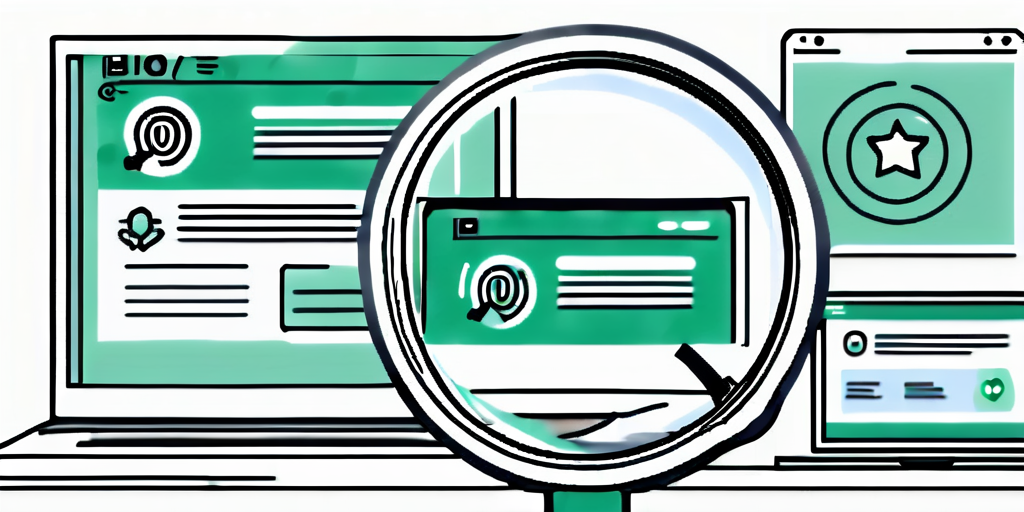The Ultimate Guide to Managing Online Reputation for Charities

Your charity’s online reputation is crucial for its success in the digital age. As more people turn to the internet to make decisions about which organizations to support, it’s essential for charities to understand the significance of online reputation and take necessary steps to manage it effectively. In this comprehensive guide, we will explore why online reputation matters for charities, how to build a positive online presence, methods to monitor and manage your charity’s reputation, and the legal aspects associated with reputation management. Let’s dive in!
Understanding the Importance of Online Reputation for Charities
In today’s interconnected world, online reputation plays a pivotal role in the success of charities. Donors, volunteers, and supporters rely on the internet to gather information about charitable organizations before getting involved. Positive reviews and comments can help attract more individuals to your cause, leading to increased donations and support. On the other hand, negative online reputation can be detrimental, deterring potential supporters and damaging your charity’s credibility. This brings us to the fundamental role online reputation plays in charity success.

The Role of Online Reputation in Charity Success
Your charity’s online reputation serves as a reflection of its values, transparency, and effectiveness. A positive reputation instills trust and confidence in potential donors and volunteers. It demonstrates that your organization is reliable and accountable for the impact it creates. Conversely, a negative online reputation can raise doubts about your charity’s legitimacy and impact, making it challenging to attract support. Managing your online reputation is crucial for establishing a strong foundation upon which your charity can thrive.
The Impact of Negative Online Reputation on Charities
Negative online reputation can significantly hinder a charity’s success. Negative reviews, comments, or media coverage can spread quickly, tarnishing your reputation and limiting your ability to attract donors and volunteers. Furthermore, negative content can dominate search engine results, overshadowing the positive aspects of your charity. It’s imperative to actively monitor and address any negative online reputation to mitigate its impact on your organization.
One of the key challenges that charities face in managing their online reputation is the viral nature of negative content. With the advent of social media platforms and online review websites, a single negative comment or review can quickly gain traction and reach a wide audience. This amplification effect can be particularly damaging for charities, as it can create a distorted perception of their work and impact.
Moreover, negative online reputation can also have long-lasting effects on a charity’s ability to secure partnerships and collaborations. Potential corporate sponsors or grant-making organizations often conduct thorough research on a charity’s online reputation before deciding to support them. If they come across negative content or perceive a lack of transparency, they may hesitate to associate their brand with the charity. This can result in missed opportunities for funding and growth.
Addressing and managing negative online reputation requires a proactive approach. It is essential for charities to actively monitor their online presence, including social media platforms, review websites, and search engine results. By promptly responding to negative comments or reviews and addressing any concerns raised, charities can demonstrate their commitment to transparency and accountability. Additionally, engaging with supporters and donors through online platforms can help build a positive online community that can counterbalance any negative content.
Building a Positive Online Reputation
Creating a Strong Online Presence
Creating a strong online presence is the first step towards building a positive reputation for your charity. In today’s digital age, having a professional website is crucial for establishing your organization’s credibility. A well-designed website not only showcases your charity’s mission and impact but also provides a platform for supporters and donors to learn more about your work.
But it doesn’t stop there. To truly create a strong online presence, you need to go beyond just having a website. Engaging social media profiles play a vital role in reaching a wider audience and connecting with potential supporters. By leveraging various digital platforms, such as Facebook, Twitter, and Instagram, you can share inspiring stories, impactful images, and informative videos that resonate with your target audience.
Consistently updating your online platforms with relevant and compelling content is essential. This not only keeps your audience engaged but also helps establish your charity as a credible and trustworthy organization. By regularly sharing updates on your projects, success stories, and upcoming events, you demonstrate transparency and keep your supporters informed about the impact of their contributions.
Engaging with Supporters and Donors Online
Engaging with your supporters and donors online is key to building a positive reputation. It’s not enough to simply have a presence on social media or a website; you must actively interact with your community to foster stronger relationships and enhance your reputation in the process.
One way to engage with your supporters is by responding to comments and messages in a timely and thoughtful manner. By acknowledging their feedback, answering their questions, and expressing gratitude for their support, you demonstrate that you value their input and appreciate their involvement in your charity’s mission.
Furthermore, engaging with your community online allows you to gather valuable insights and feedback. By listening to your supporters’ opinions and suggestions, you can continuously improve your programs and initiatives, ensuring that your charity remains relevant and impactful.
Remember, building a positive online reputation takes time and effort. It requires consistent communication, meaningful interactions, and a genuine commitment to your supporters and donors. By creating a strong online presence and actively engaging with your community, you can establish your charity as a trusted and respected organization in the digital landscape.
Monitoring Your Charity’s Online Reputation
Tools for Online Reputation Management
Effective reputation management requires the use of various tools. Online monitoring tools, such as Google Alerts and social media listening platforms, can help you stay informed about mentions of your charity across the web. By actively monitoring online conversations, you can quickly identify and address any potential issues before they escalate.

Google Alerts is a powerful tool that allows you to receive email notifications whenever your charity’s name or relevant keywords are mentioned online. This enables you to keep a close eye on what people are saying about your organization, whether it’s on news websites, blogs, or social media platforms. By being aware of these conversations, you can promptly respond to any concerns or questions raised by the online community.
Social media listening platforms, on the other hand, provide you with a comprehensive view of how your charity is being perceived on various social media channels. These platforms analyze the sentiment behind mentions of your organization, allowing you to gauge the overall sentiment towards your charity. This information is invaluable in understanding how your organization is perceived and can help you identify areas for improvement.
Responding to Negative Reviews and Comments
Responding to negative reviews and comments is a crucial part of reputation management. When encountering negative content, it’s important to remain calm and address the concerns professionally and empathetically. Demonstrating your willingness to rectify any issues and improve upon them can help turn a negative situation into a positive one, showcasing your commitment to transparency and growth.
However, it’s not just about addressing negative reviews; it’s also about learning from them. Negative feedback can provide valuable insights into areas where your charity can improve. Take the time to analyze the concerns raised and see if there are any patterns or recurring issues. This information can guide your organization’s efforts to enhance its services and better meet the needs of your beneficiaries.
Additionally, when responding to negative reviews or comments, it’s essential to do so in a timely manner. Promptly acknowledging the concerns shows that you value feedback and are committed to resolving any issues. It also demonstrates to others who may be reading the review that you are proactive in addressing concerns, which can help mitigate any potential damage to your charity’s reputation.
Implementing a Reputation Management Strategy
Developing a Crisis Management Plan
In the unpredictable world of online reputation, having a crisis management plan in place is essential. Anticipating potential crises and establishing clear protocols for addressing them can help minimize damage and protect your charity’s reputation. Designate individuals responsible for handling reputation issues and ensure that communication channels are established to act swiftly during times of crisis.
Regularly Updating and Improving Online Content
Stagnant online content can harm your charity’s reputation. Regularly updating your website and social media profiles with fresh and compelling content keeps your audience engaged and demonstrates your commitment to transparency and progress. Additionally, actively seeking feedback from your supporters and donors allows you to address any areas of improvement and enhance your reputation over time.
Legal Aspects of Online Reputation Management
Understanding Defamation and Libel Laws
Charities must be aware of the legal considerations surrounding online reputation management. Understanding defamation and libel laws can help protect your organization from false and damaging statements made online. Consult with legal professionals specializing in reputation management to ensure you navigate these complexities effectively and safeguard your charity’s reputation.
Protecting Your Charity from Online Attacks
In the digital world, charities are vulnerable to online attacks from malicious individuals or groups. Ensuring your charity has proper cybersecurity measures in place is crucial for safeguarding your reputation. Implement robust security protocols, educate your team about online safety, and be prepared to respond swiftly and effectively in the unfortunate event of an attack.
Conclusion
Managing your charity’s online reputation is a vital part of ensuring its long-term success. By understanding the importance of online reputation, building a positive presence, monitoring your reputation, and implementing a comprehensive reputation management strategy, you can safeguard your charity’s credibility and attract more support. Remember that building and maintaining a positive online reputation requires ongoing effort and dedication. Stay vigilant, adapt to changing circumstances, and prioritize transparency and accountability, and your charity will thrive in the digital age.

Ready to elevate your nonprofit’s digital presence and maximize your online reputation? BlueWing is your dedicated partner in crafting and managing effective paid media campaigns that resonate with your audience. With our expertise in the Google Ad Grants program and a commitment to sustainable growth, we’re here to help you outperform industry benchmarks and amplify your impact. Contact us today to learn how we can turn your digital strategy into a powerful tool for change.


